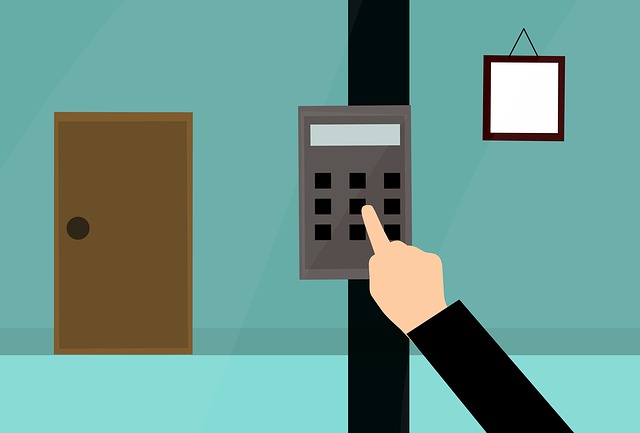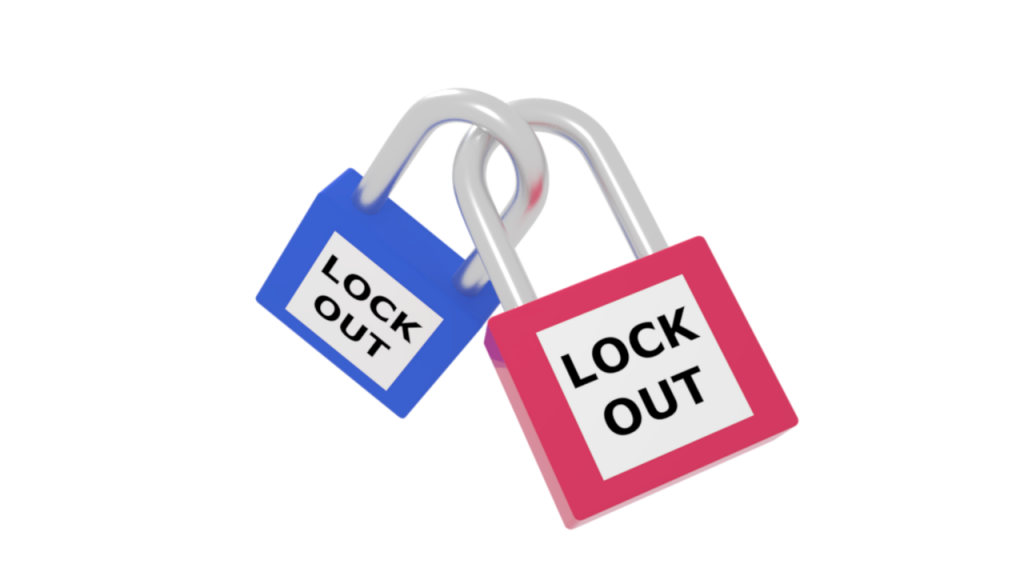Burglar alarm systems make up one of the most effective means of home security on the market. These systems alert families and local authorities to potential break-ins, and even stop many burglaries from taking place at all. The blaring siren response to a door or window opening unexpectedly wakes up sleeping families and often scares thieves away before they get inside a property at all. Furthermore, the presence of an alarm company’s yard signs and window stickers alone acts as a deterrent. After all, why would a burglar choose an alarmed home to break into over an unsecured property? However, occasionally successful break-ins of alarmed homes do occur. In these cases, burglars find a way to circumvent the security system. With this post, we hope to provide you with valuable tips for securing your alarm so that this does not happen to you.
For starters, we’ll show you how to effectively manage both alarm codes and verbal passwords. Obviously, an alarm will not secure you if burglars have the information necessary to disarm the system or cancel a police response. Therefore, keeping this information out of the wrong hands deserves extra care. From there, we will look at how alarm companies can take a step to keep your alarm panel’s information safe. Finally, we will show you how choosing the most effective means of alarm monitoring ensures your alarm works when you need it most. Let’s get started with a look at proper alarm code management.

If you have multiple individuals utilizing the same alarm code, you could be hurting your security.
Manage Your Alarm Codes Properly
As we pointed out earlier, alarm systems do nothing to stop anyone with a code from entering your property. If you have one code for all alarm users, then you’ve greatly decreased your alarm’s effectiveness. Unfortunately, people who may have needed to disarm your security system at one point may come back months or even years later with less-than-pure intentions. If you do not properly manage your alarm codes, these individuals will have no trouble getting past your alarm. Giving different individuals their own codes allows you to delete codes as individuals no longer need access to your home. This can eliminate the chance of an unexpected visit from an old housesitter or contractor down the line.
Furthermore, many of our customers have monitoring methods that track alarm use. This allows them to view their alarm history, including who arms and disarms the security system, and when. Customers who use one alarm code greatly lessen the value of this type of monitoring. After all, you cannot track who’s really arming and disarming the security system if you fail to create different codes for each alarm user. Therefore, adding codes can help you both control and track security system use in your home. Now, we’ll share how alarm customers use passwords, and how creating multiple passwords helps with securing your alarm.
Create Different Passwords for Alarm Users
A few months ago, we created a post answering one of the most popular questions we receive: What Happens After My Alarm Goes Off? In that post, we explained the importance of an alarm customer’s “passwords.” This word (or series of numbers) allows alarm users to cancel a false alarm. After receiving an alarm signal, a central station operator first contacts the property’s main phone line. At this point, anyone present can pick up the phone and tell the central station not to send the police. However, in order to do so, they must provide the proper password. This keeps burglars from cancelling a police dispatch simply by requesting the central station to do so.
Unfortunately, many customers use the same password for all alarm users. This allows anyone that knows the password to keep the police at bay after breaching an alarmed property. Even if you keep up with user code management, failing to do the same with password management can render your best efforts ineffective. Therefore, we recommend creating different passwords for every new alarm user. When deleting a user’s code, you can also contact your alarm company and request that they deactivate the individual’s password as well! Taking these steps will ensure that your alarm creates both the audible response and police dispatch that you count on when you need them most. Next, we’ll explain one step your security company can take to help in securing your alarm.
Make Sure Your Alarm Company “Locks Out” Your Panel
When we install a security system, we have to enter a specific menu that allows us to perform some important programming functions. For example, we must program alarm sensor names. This allows you to know exactly which security sensor has activated your system in the case of an alarm. Additionally, we program each customer’s desired “Master” code into the alarm. Once completed, customers can then use that code to add and delete additional user codes.

If your alarm company fails to “lock out” your alarm, other individuals can make unwanted changes to your security system’s programming, including adding and deleting user codes without your knowlegde.
After completing programming, we have the option adding an “installer” code to the security system. This keeps others from entering the programming menu and making their own changes. We highly recommend making sure your alarm company adds this code to increase your alarm’s security. In cases where security companies do not create an installer code, literally anybody can add their own codes to an alarm system.
While this may sound complicated, potential thieves can easily use the internet to find directions to program any alarm panel. In commercial applications, we especially recommend that you require your alarm provider to add an installer code to your security system. This keeps customers with ill intent and even employees from making unwanted changes to your security programming. Let’s now wrap up our tips for securing your alarm by exploring the most secure monitoring method available!
Use the Most Effective Means of Monitoring Possible
We offer several ways to connect your alarm to our central station. When most people think about this service, they think of “traditional” alarm monitoring. This monitoring option involves connecting your existing phone lines to your security panel. In turn, this allows the alarm to dial out to the central station upon detecting trouble. For a long time, this type of monitoring remained the only alarm monitoring option. Unfortunately, this type of alarm monitoring comes with its limitations. For example, phone line issues disrupt traditional alarm monitoring, keeping security systems from communicating during outages. Furthermore, savvy criminals often cut their victims’ phone lines before a burglary. This keeps tradionally-monitored alarms from calling for help.
Cellular monitoring, now our most popular type of monitoring, effectively addresses these issues. This service involves the installation of a piece of equipment called a “cellular dialer” in your alarm panel. In turn, this dialer uses a cellular network to monitor your alarm. Therefore, cellular monitoring allows your alarm to dial out for help even during phone outages! Moreover, installing a cellular dialer allows customers to cancel their phone service without interrupting their security monitoring. For customers paying for phone lines for the sole purpose of monitoring their alarm system, this can save quite a bit of money over time! The combination of increased security and cost savings make cellular monitoring a no-brainer for many customers.
Putting it all Together and Securing Your Alarm
We hope that this post gives you some valuable help with securing your alarm system. Security systems provide invaluable security and peace of mind. Unfortunately, many alarm customers fail to take the necessary steps to keep the alarm working as effectively as possible. In addition to following these tips, we also encourage you to contact us with any questions you may have. We pride ourselves in acting as a resource for all security-related topics.
Furthermore, we provide free site surveys to both new and existing customers alike. Perhaps you have some alarm equipment in place and wish to have us evaluate your needs for additional security. Or maybe you’d like us to help you design a new alarm from scratch. Either we, we are happy to help! Together, we can create an efficient and effective security plan to keep you, your most valuable possessions, and your loved ones as safe and secure as possible.
